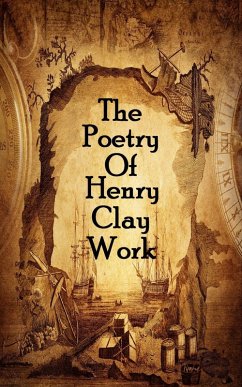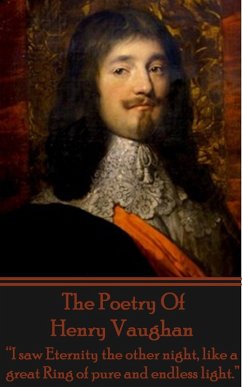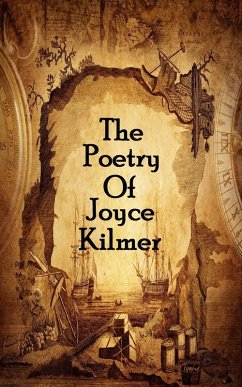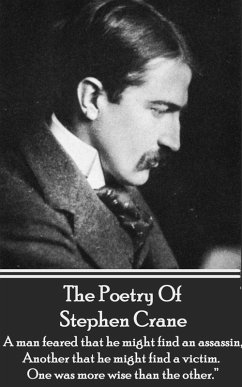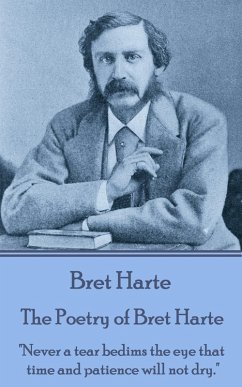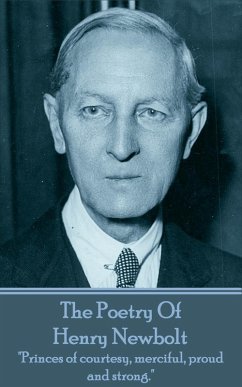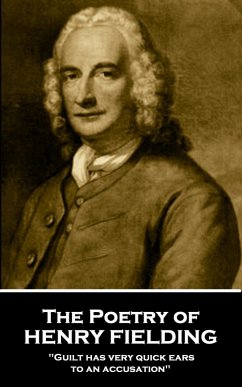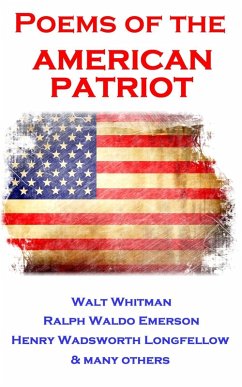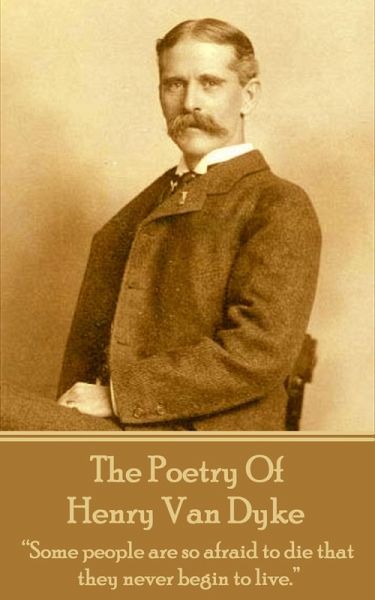
The Poetry Of Henry Van Dyke (eBook, ePUB)
"Some people are so afraid to die that they never begin to live."

PAYBACK Punkte
1 °P sammeln!
Poetry is a fascinating use of language. With almost a million words at its command it is not surprising that these Isles have produced some of the most beautiful, moving and descriptive verse through the centuries. In this series we look at individual poets who have shaped and influenced their craft and cement their place in our heritage. In this volume we look at the works of the American poet Henry Van Dyke. Henry van Dyke was born on November 10th, 1852 at Germantown in Pennsylvania. His education was of the highest quality; he graduated from Princeton University in 1873 and Princeton Theo...
Poetry is a fascinating use of language. With almost a million words at its command it is not surprising that these Isles have produced some of the most beautiful, moving and descriptive verse through the centuries. In this series we look at individual poets who have shaped and influenced their craft and cement their place in our heritage. In this volume we look at the works of the American poet Henry Van Dyke. Henry van Dyke was born on November 10th, 1852 at Germantown in Pennsylvania. His education was of the highest quality; he graduated from Princeton University in 1873 and Princeton Theological Seminary, 1877 (and later served as a professor of English literature at Princeton between 1899 and 1923). He chaired the committee that wrote the first Presbyterian printed liturgy, The Book of Common Worship of 1906. As a writer he is known mainly for his poetry and of course his short stories. Among these are the two Christmas stories, The Other Wise Man (1896) and The First Christmas Tree (1897). Religion meant much to him and its motifs recur constantly in his poetry, hymns and the essays collected in Little Rivers (1895) and Fisherman's Luck (1899). He wrote the lyrics to the popular hymn, "Joyful, Joyful We Adore Thee" (1907), sung to the tune of Beethoven's "Ode to Joy". He compiled several short stories in The Blue Flower (1902). In 1908-09 he was an American lecturer at the University of Paris. By appointment of President Wilson, a friend and former classmate of van Dyke, he became Minister to the Netherlands and Luxembourg in 1913. His poetry was widely admired and was even used as the basis for several hymns and songs, latterly in the 1960s so his influence has been long lasting. Henry Van Dyke died on April 10th, 1933 and is perhaps best remembered in the following quote from his work: "Time is too slow for those who wait, too swift for those who fear, too long for those who grieve, too short for those who rejoice, but for those who love - time is eternity". Many samples of his work can be found at our youtube channel http://www.youtube.com/user/PortablePoetry?feature=mhee Many of these poems are in an audiobook by our sister company and can be purchased from iTunes, Amazon and other digital stores. Among the readers are Richard Mitchley and Ghizela Rowe
Dieser Download kann aus rechtlichen Gründen nur mit Rechnungsadresse in D ausgeliefert werden.




